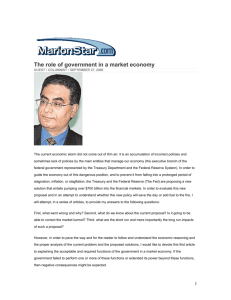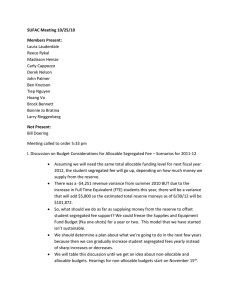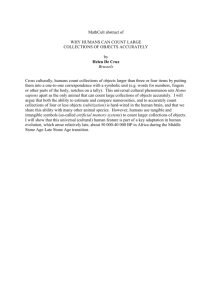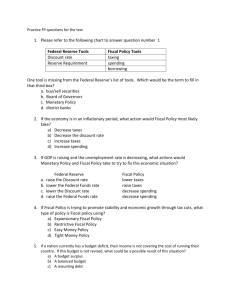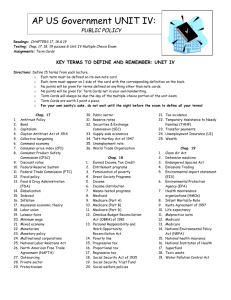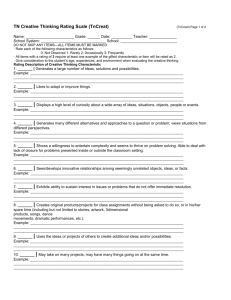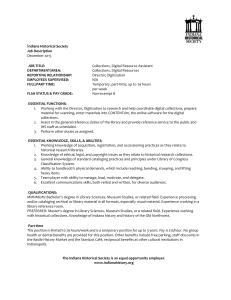Mass. House boosts state reserves (Associated
advertisement
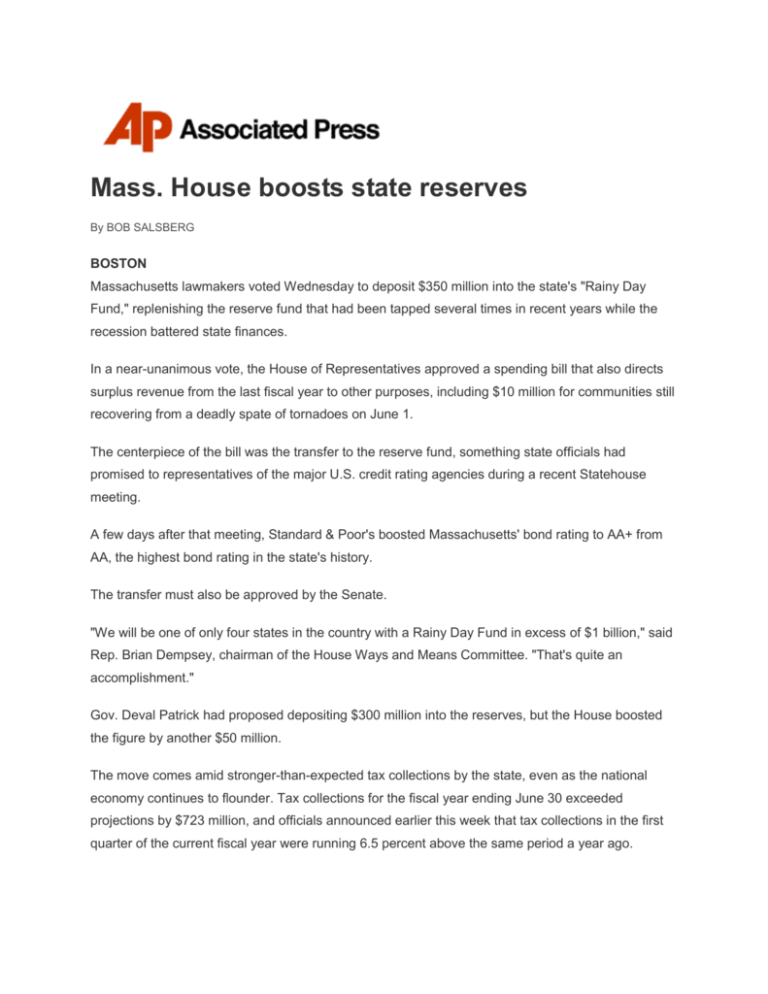
Mass. House boosts state reserves By BOB SALSBERG BOSTON Massachusetts lawmakers voted Wednesday to deposit $350 million into the state's "Rainy Day Fund," replenishing the reserve fund that had been tapped several times in recent years while the recession battered state finances. In a near-unanimous vote, the House of Representatives approved a spending bill that also directs surplus revenue from the last fiscal year to other purposes, including $10 million for communities still recovering from a deadly spate of tornadoes on June 1. The centerpiece of the bill was the transfer to the reserve fund, something state officials had promised to representatives of the major U.S. credit rating agencies during a recent Statehouse meeting. A few days after that meeting, Standard & Poor's boosted Massachusetts' bond rating to AA+ from AA, the highest bond rating in the state's history. The transfer must also be approved by the Senate. "We will be one of only four states in the country with a Rainy Day Fund in excess of $1 billion," said Rep. Brian Dempsey, chairman of the House Ways and Means Committee. "That's quite an accomplishment." Gov. Deval Patrick had proposed depositing $300 million into the reserves, but the House boosted the figure by another $50 million. The move comes amid stronger-than-expected tax collections by the state, even as the national economy continues to flounder. Tax collections for the fiscal year ending June 30 exceeded projections by $723 million, and officials announced earlier this week that tax collections in the first quarter of the current fiscal year were running 6.5 percent above the same period a year ago. State officials have cautioned, however, that the financial picture could quickly darken if the overall economy and employment picture fails to improve. The spending bill approved on Wednesday also includes money for several collective bargaining agreements, including $4.5 million to fund a new contract for state police. Lawmakers also heeded a call from human services advocates to provide raises to more than 30,000 direct care workers who have not received a pay raise in at least three years. The bill would create a $10 million fund to support raises for workers who earn less than $40,000 a year. "We are grateful to the Legislature for funding the Salary Reserve for some of the lowest paid employees in the state, many of whom are living paycheck-to-paycheck and struggling to make ends meet," said Michael Weekes, president and CEO of the Providers Council, which represents human service agencies around the state.


